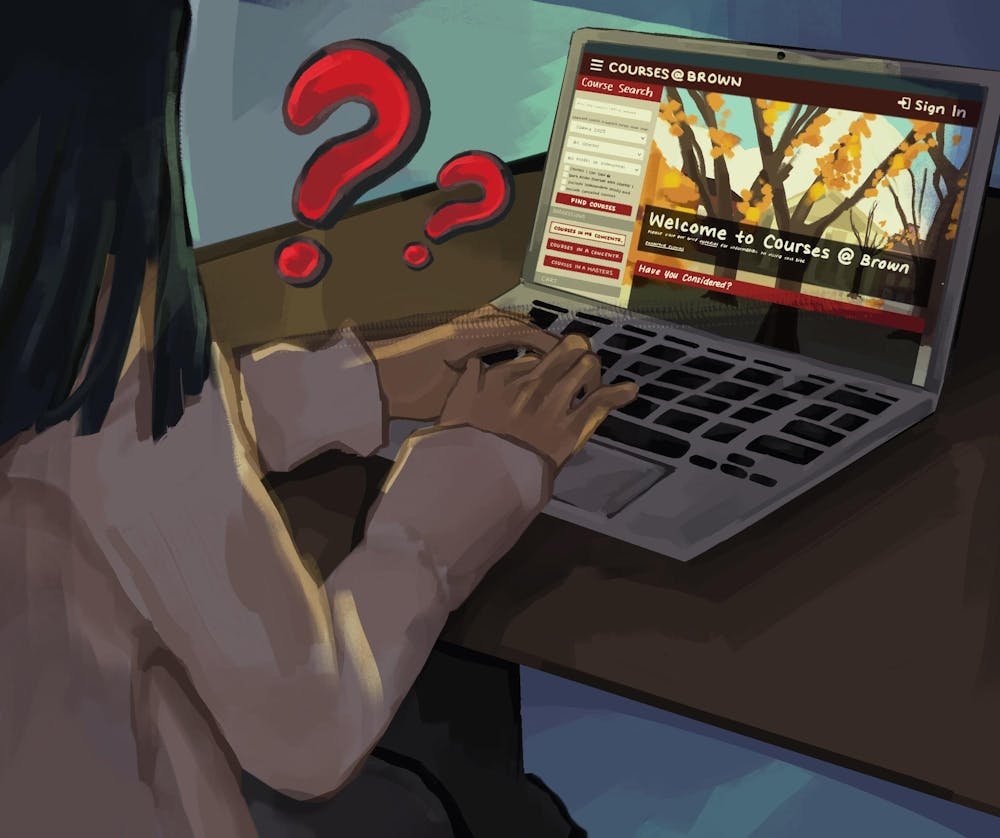For students at Brown, shopping period offers an opportunity to explore various courses and discover new academic pursuits. Undecided first-year students, in particular, take advantage of these first two weeks every semester to hone their interests and consider which areas of study they may wish to pursue for the rest of their collegiate career.
Undecided students who spoke with The Herald described shopping period as full of possibility but also overwhelming.
When Wesley Horn ’28 first arrived on campus, he expected to study applied mathematics. But over the course of his first semester, courses in other fields shifted his focus toward history.
“Through shopping period, I tried out a bunch of different classes and decided I’d keep with the ones that I just found most interesting, regardless of whether they fulfilled any concentration requirements,” Horn said.
This practice is relatively common, Horn said, noting that many students who came in with a specific intended concentration, only to change their minds a few weeks later.
“A lot of my friends are sort of in the same boat, just trying to figure out what specific concentration works best for them,” Horn said.
For other students, like Derek Kim ’28, the Open Curriculum is about exploring all their fields of interest while keeping a possible concentration in mind.
“I intended to be a social analysis and research concentrator, and I’m taking two sociology classes this semester,” Kim said. “The benefit of sociology is that it’s very interdisciplinary.”
Nikos Koss ’28 came to Brown intending to study economics and environmental science, but has since shifted his focus to computer science.
This semester, Koss is interested in exploring classes that are more interactive such as photography and music theory. This would build on his previous exploration in contemplative studies last semester, in which he took a course that incorporated meditation labs.
He highlighted the unique structure of interactive classes, noting that “you’re not just reading about something, you’re also experiencing it.”
Zoë Kountoupes-Wilson ’28 applied to Brown as a sociology concentrator, but entered the field “without actually knowing entirely what it meant,” she said.
In her first semester, Kountoupes-Wilson took a first-year seminar about health inequalities, leading to an interest in public health.
Horn, Kim, Koss and Kountoupes-Wilson all agreed that the Open Curriculum has allowed them to explore additional subjects. But for some, the flexibility complicates the process of choosing courses.
“When it comes down to the actual decision-making, it can be a little bit of a drawback, because there are just so many great opportunities,” Horn said.
Kim shared a similar sentiment, adding that while he has explored many courses, “there’s so many more I could be taking.”
“It can be kind of difficult to decide, but I feel like that’s kind of a good problem to have,” Koss said.
Students mentioned that speaking with peers, reading the Critical Review and meeting with their exploratory advisors have been the best strategies for finding and choosing classes.
Horn’s exploratory advisor helped him get out of his comfort zone “while still making sure I feel supported academically in that transition,” Horn said.
Sheila Haggerty, the associate director of the Nelson Center for Entrepreneurship and exploratory advisor to first- and second-year students, said she hopes students come to Brown “undecided in some ways,” explaining that undecided students are often “more open to all the choices of the Open Curriculum.”
Haggerty said the choice to call fields of study “concentrations” is fitting. At Brown, she said, “the majority of your courses are the ones that are free-choice” and outside of a student’s chosen academic field.
“You’re not majoring in something, and that’s why we call it a concentration because it’s not the majority of your courses,” she said.

Amber Marcus-Blank is a senior staff writer covering undergraduate student life. She is a sophomore from outside of Boston studying Political Science and Public Health on the pre-law track. She is interested in working in politics and journalism in the future and enjoys playing soccer and making playlists in her free time.





